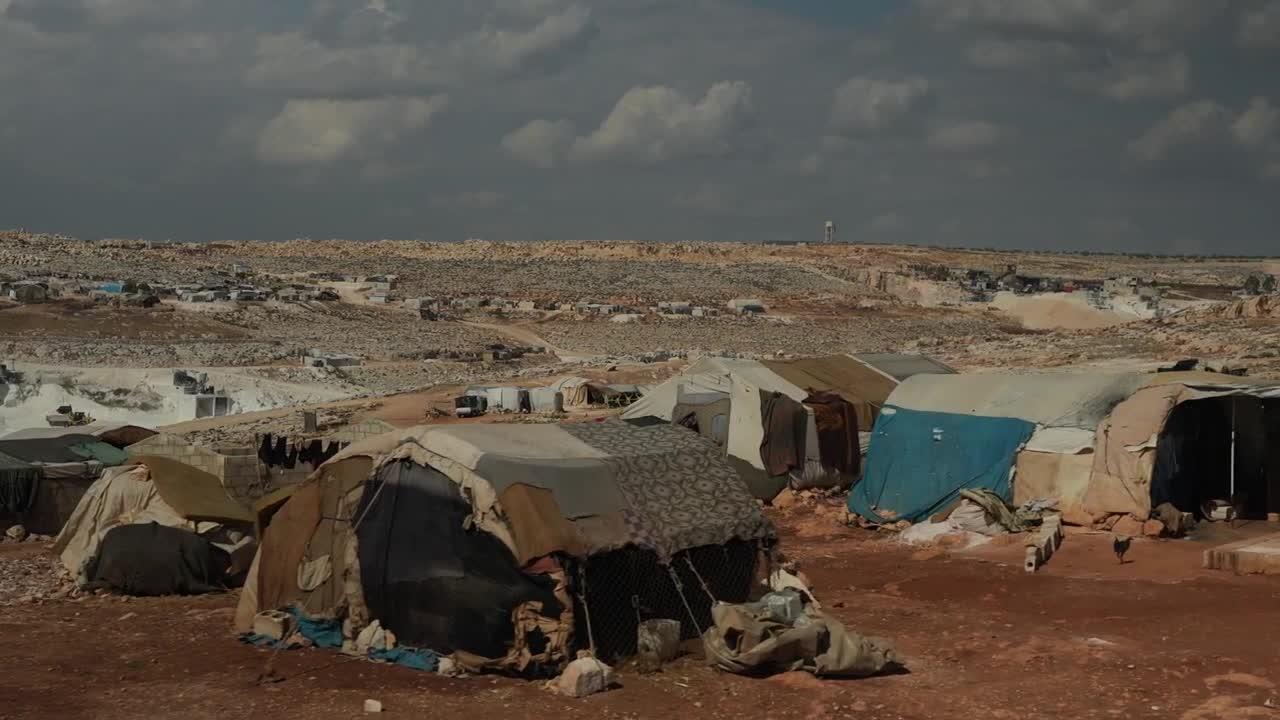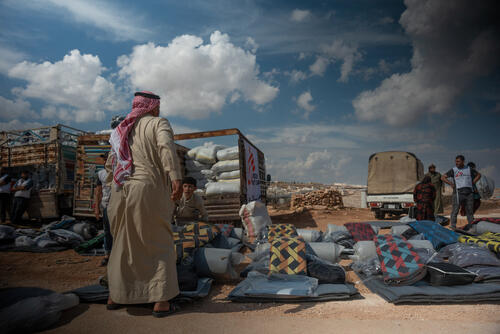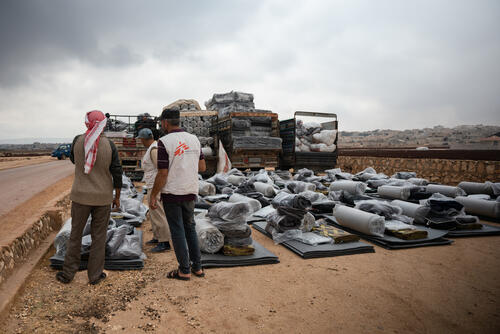“Last winter, we had to use scraps of plastic and shoes for heating because there were no safe heating materials available,” says Ahmed Al-Mohammed, who lives in a camp for displaced people in Dana, in northwest Syria’s Idlib province. “Life in the camp is hard and winters here are harsh.”
Some two million people live in camps in northwest Syria after being displaced from their homes by the country’s 12-year-long conflict. The camps are overcrowded, and their infrastructure is basic or even non-existent: many lack roads, electricity, running water, toilets, shower blocks and storm drains.
Often, they are situated in remote, flood-prone areas, far from towns and essential services such as schools, markets, and health centres. Poor roads and insecurity as a result of the ongoing conflict combine to make camp residents even more isolated.

Winter in northwest Syria camps
Living conditions in the camps have deteriorated further since the devastating earthquakes which struck the region in February 2023, while a recent escalation in violence, which began on 5 October, has seen a further 40,000 people in the region displaced from their homes.
Now winter is approaching. Temperatures in this region frequently drop as low as 5 degrees centigrade, often accompanied by strong winds and heavy rains, causing flooding, and destroying the fragile tents in which camp residents live. Meanwhile, a shortfall in aid funding has resulted in a limited provision of assistance.
Teams from Médecins Sans Frontières (MSF) visiting 23 camps in the Dana, Atma and Maarat Misrin areas of Idlib province found that more than 4,400 households lacked the basic means of protecting themselves from the cold. Many people’s tents were only intended to be temporary shelters and are unable to withstand strong winds or heavy rains.
Last winter, we had to use scraps of plastic and shoes for heating because there were no safe heating materials available. Life in the camp is hard and winters here are harsh.Ahmed Al-Mohammed, a displaced person living in a camp in Dana, Idlib
“Displaced people resorted to using temporary tents to protect themselves, which later turned into permanent shelters, despite lacking the basic necessities of life and being exposed to harsh weather conditions in the winter”, says Marwan Al-Samao, MSF logistics supervisor in Idlib province. “Most tents in the camps in northwest Syria have not been replaced for a long time and are in desperate need of thermal insulation, external insulation with plastic fabric, as well as basic furnishings like mattresses and blankets.”
A shortage of fuel for stoves is also a major issue. Many people resort to lighting open fires inside their tents in an effort to keep warm. This presents a serious fire risk as tents are often made of flammable materials and are pitched close together in the overcrowded camps. In 2022, more than 180 fires were reported in camps in northwest Syria.
Living conditions such as these expose already vulnerable people, particularly children and the elderly, to the risks of cold-related diseases, respiratory diseases, infections and frostbite, say MSF medical staff.

“The plastic fabric covering our tent is completely worn out and has not been replaced for four years,” says Al-Mohammed. “This camp is located in a rugged mountainous area which is prone to flooding and water flow. In winter, we struggle to reach nearby towns due to the condition of the roads.”
MSF runs seven mobile clinics providing basic healthcare at 23 camps for displaced people in Idlib province. In October, MSF teams distributed winter kits to more than 3,800 families in these camps. Each kit contained thermal insulation, plastic fabric, mattresses, blankets, ground insulation and winter clothing. However, there are still thousands of families in need of extra supplies to get them through the winter months.
“Providing winter-related support for people in camps can have a significant impact on reducing winter-related diseases and contribute to better living conditions for families in need,” says Al-Samao. “However, we can cover only a small portion of the needs in the region. Since the recent military escalation, the number of displaced people has increased notably, exacerbating their suffering and escalating people's needs, including for protection and medical care.”



